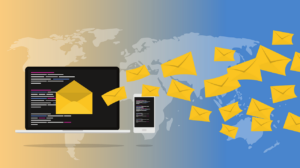Marketing is a dynamic endeavor. One marketing platform can be used in one way by an enterprise and in a completely different way by another, depending upon the type of business they are into. Also, one platform will have a different score in popularity metrics compared to another.
For instance, an e-learning enterprise may leverage the Quora platform and telemarketing more often than email marketing, while an e-commerce company will make use of its website more often than any other platform. Impressive answers on a ‘question and answer’ platform entice students and professionals to opt for courses in emerging technologies, whereas a remarkable product description and review on a robust website will attract more and more customers to make purchases.
Despite the subtle differences in utilization, there is a consensus about various marketing platforms and what their overall impact is on customer experience. Marketers use almost all of these platforms at different stages of their marketing efforts. And some platforms are not used by some businesses, while playing a significant role for others.
Without further ado, let’s discuss five such marketing platforms, how they impact customer experience (CX), and how you must leverage them for your business.
Emails (Email Marketing)
In communicating with prospects and customers, email is the preferred medium of 86 percent of B2B marketers. Why? Because it is the most cost-effective medium of communication. Think about it; all you have to do is frame the message depicting how your business can bring value for the buyer. Then frame the message in an exquisite email and press the send button. Your message has reached your customer’s inbox instantly.
Impact on CX:
From the customer’s point of view, an email is the least nagging form of marketing communication. With an email, you are giving the customers their own time and peace of mind to consume the content about your business. Decisions made after thorough consideration and careful thought processes are taken for the long-term and are generally not reversed.
Also, customers may be seeking a product or service that may be unavailable. Based on their past purchases and preferences, you can leverage predictive analytics to suggest the products that might captivate their interest.
The best example of this strategy is that of Amazon’s. By collecting data points such as name, search query, brand affinity, browsing habits, etc. and applying item-to-item collaborative filtering, they recommend products that you like and many times purchase happily.
How to Leverage Email Marketing?
For 59 percent of marketers, email is the most effective revenue generation tool. Email is the best marketing medium for B2B and B2C. Send personalized emails that address customer pain points. Use automation to make your email marketing more effective. Do not, however, overwhelm your prospects by bombarding their inboxes. Instead use email marketing in moderation.
Social Media Platforms
Social media is used by 84% of people with access to the internet. This is the reason why almost all online businesses use social media platforms. While B2B companies rely mostly on LinkedIn, B2C businesses rely more on Facebook and Instagram. Tik Tok and Snapchat are also being used extensively nowadays and all of these social media platforms are becoming an integral part of everyone’s life.
Impact on CX:
Social media platforms have given immense power to consumers and have provided quicker outreach for marketers and influencers. Did you know, 52% of online brand discovery happens on social media platforms? This means if brands are promoting their products or services on social media platforms, most customers will eventually become aware of it. But also do remember that social media platforms have empowered customers and that can have devastating implications on businesses, if they are not serving their customers well.

While buyers of earlier generations could do very little other than wail about a bad experience, social media has given the buyers of this generation the ability to wail less and do more, tarnishing the reputation of businesses that fail to deliver value to their customers.
How to Leverage Social Media?
3.48 billion people, i.e., 45% of the world population is using a form of social media. So, almost half of the world falls under the radar of your prospective customers. But not everyone uses all of the social media platforms in a similar way, and you should pick the platform for your business carefully. For B2B clients, LinkedIn should be the first platform of choice, while if you are a vendor of apparel and merchandise that make teenagers swoon, Instagram and Facebook should be your platform of choice.
Websites
A website is a medium that showcases your products and services to people. It is the first impression of your business. The foremost thing most people do after coming to know about your business is to visit your website. If it lacks quality and appeal, your prospects will turn away from you and associate themselves with one of your competitors who may not necessarily have better products and services than yours, but definitely a better website.
Impact on CX:
The importance of the structure and quality of a business website on customer experience can be determined by the fact that 75% of Internet users, according to a study by Stanford, judge the credibility of a business solely based on their website.
Also, if a website takes 4 seconds or more to load, 25% of its visitors abandon the site. Considering that websites are the gateway of the journey that converts visitors into buyers, businesses must make serious efforts to enhance the journey beginning with the gateway.
How to Leverage Websites:
Websites can be slippery ground when it comes to user attention. A survey by the Nielsen Norman Group found that only 16% of users read articles word by word on a website, while 79% of users simply glance over the content. Therefore, your website must be visually appealing and have meaningful, concise content. Mixing different types of content like infographics, videos, podcasts, etc. is a better idea if you want your website to have a vibrant look and feel.

Banner Advertisements
Banner advertisements work in confluence with websites. They can provide brand exposure in an exciting, interactive way. By displaying the right ads in the right places, you can grab customer attention. Many marketers use impressive banner content that redirects users to various website sections.
Impact on CX:
Banner ads are quite successful in the B2C space since they tend to draw users who might be in quest of what you are advertising or look at it with new interest. Of course, the latter also depends upon the quality of your banner advertisement.
When it comes to the B2B space, it is not always wise to overly focus on banner ads. B2B executives and buyers are more often than not looking for information and prefer not to spend time on ads meant to elicit excitement more than provide information. You can, nevertheless, create banner ads with several redirects, but the essence will be lost without guaranteeing B2B success.
How to Leverage Banner Ads:
Make your website interactive with interactive banner ads. If possible, add mini-games to it. Banner ads draw customer attention to your products and services, just do it in a way that causes them to observe, stop, and engage with your brand. In the B2B landscape, use it with discretion and with moderation in B2C channels.
Direct Mails
Direct mails may be an old platform, but they are not outdated. With a median ROI of 29%, direct mail stands in the third position in effectiveness behind email marketing and social media marketing. More important is the fact that it loses to social media marketing by only 1 percentage point.

Direct mails enable you to reach your audience, grab their attention, and connect to them, all at a personal level. And this is the reason why direct mail in this digital age is still prevalent and will remain so.
Impact on CX:
Believe it or not, there are more people in the world today who still prefer direct mail as the most viable mode of advertisement. 73% of people believe and prefer direct mail for advertising, while 57% expressed that receiving mail makes them feel valued and special. The result is more conversion. Nearly 66% of people bought a product because of direct marketing.
How to Leverage Direct Marketing:
Direct marketing is leveraged in both B2B and B2C sectors with somewhat equal success. B2B leaders, in particular, give more preference to direct mail because it is less disruptive. Direct mails also get more response when compared to other digital marketing platforms.
This brings us to the end of our selected list of marketing platforms.
Wrapping it up
Although comprehensive, this list is not exhaustive. There might be several other platforms used extensively by businesses of a specific niche. If you believe we have missed out on a significant platform, you can always leave a word for in the comments section.
All the five platforms that we have covered in this article impact customer experience in their own way. Companies leverage these platforms in parallel to increase their lead generation and then conversion to make a profit. Whatever your strategy always remember to make customer experience your foremost concern.





